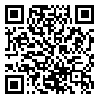Volume 14, Issue 1 (Volume 14, No 1 2023)
jdc 2023, 14(1): 53-58 |
Back to browse issues page
Download citation:
BibTeX | RIS | EndNote | Medlars | ProCite | Reference Manager | RefWorks
Send citation to:



BibTeX | RIS | EndNote | Medlars | ProCite | Reference Manager | RefWorks
Send citation to:
Yazdani Hamid F. Evaluate efficacy of topical probiotics wound healing. jdc 2023; 14 (1) :53-58
URL: http://jdc.tums.ac.ir/article-1-5650-en.html
URL: http://jdc.tums.ac.ir/article-1-5650-en.html
Pharmaceutical Sciences Branch, Islamic Azad University, Tehran, Iran , f.yhamidi@gmail.com
Abstract: (1272 Views)
Treatment of chronic conditions like diabetic foot ulcer (DFU) is challenging due to increased susceptibility for infection and delayed wound healing. Complexity of existing therapy, adverse effects and microbial resistance emphasizes the need of an alternative approach for the management of DFU. The increasing body of evidence associated with probiotic application in diverse disease states merits its use in wound healing and infection too. Different probiotic strains have shown their efficacy in various infections like gut infections, oral infections and urogenital infections. Experimental studies have demonstrated probiotics’ ability for gastric ulcer healing. Underlying mechanism of the above therapeutic effects of probiotics involves modulation of local and systemic immunity. The hypothesis is based on the concept that mechanism of anti-infective and ulcer healing action of probiotics will be similar in peripheral wounds and ulcers as on any other part of the body. This paper focuses on the hypothesis that topical formulation of probiotics may be effective for the treatment of diabetic foot ulcers.
Type of Study: Review |
Subject:
General
Received: 2023/06/21 | Accepted: 2023/05/5 | Published: 2023/05/5
Received: 2023/06/21 | Accepted: 2023/05/5 | Published: 2023/05/5
Send email to the article author
| Rights and permissions | |
 |
This work is licensed under a Creative Commons Attribution-NonCommercial 4.0 International License. |





